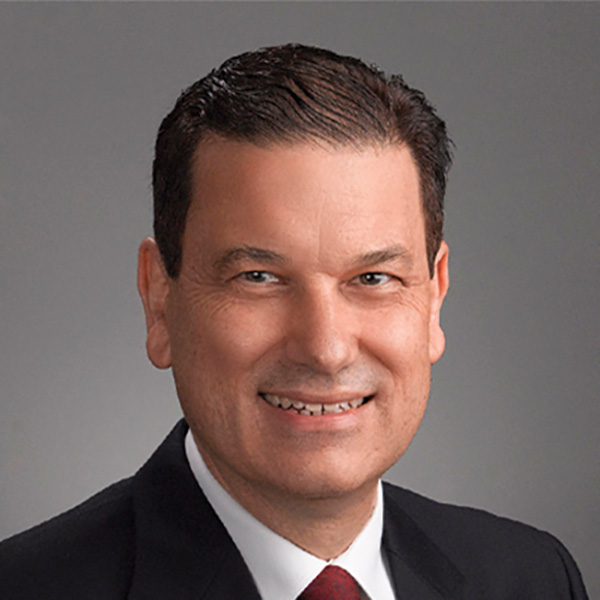G20 Executive Talk Series
September 2016
Branded Story / G20 Business
Authored by: Cherie Nursalim and David Nellor
Trade and Investment:
A G20 Opportunity
Getting trade and investment right matters for global growth – the G20 is best placed to accomplish that outcome. Merchandise trade alone still accounts for about 30 percent of global GDP even if the pace of growth has slowed.
Global macroeconomic issues, international systemic financial issues, as well as trade and investment are the core of the G20’s business. Yet, trade and investment is the G20’s Cinderella in the company of economic and financial policy even though it is just as critical for global growth prospects.
Let’s not have the G20 repeat history.
At Bretton Woods in 1944 it was agreed to establish the IMF, the World Bank, and an International Trade Organization. But as Bretton Woods was the precinct of finance ministers, only the IMF and World Bank were finalized. The International Trade Organization was left to subsequent talks that failed to deliver the envisaged global system.
Today we have a patchwork of multilateral and bilateral trade and investment agreements. These agreements benefit from compliance with WTO rules but they also venture well beyond available global guidance. Certainly the current patchwork falls far short of potential for trade and investment in spite of the best people and efforts.
The multilateral system rests heavily on the early Doha Development Round and together with the gado-gado of regional agreements defines the global system.
Regional agreements while offering potential for a constructive path forward do not always take account of multilateral considerations. Outdated premises shape this system. Doha saw development from a lens of North-South trade; in the meantime south-south trade has flourished. It viewed trade as involving separate interests of importers and exporters; in the meantime production networks mean that exporters are importers as well. These development have yet to shift the agenda to areas such as the “doing business” issues that shape global value chains.
A fit-for-purpose 21st century trade and investment system will look different. The system needs to address the inevitable “known unknowns.” We need a framework that evolves in a timely manner to new and emerging issues.
In a world of self-driven vehicles and 3D printers, the multilateral system must come to terms with digital trade. Moreover, in this age of the fourth industrial revolution even the more recent emergence of production networks will be less important, certainly production will be less labor intensive and more local. Trade and investment framework needs to be at the core of sustainable development goals. The ambitious 2030 agenda rests on pillars of innovation, investment and collaboration engaging business, government and civil society.
![]() A broad public engagement remains a missing link. Indonesian Trade Minister said at the G20 workshop in Boao Forum co-chaired by the CCPIT and International Chamber of Commerce that the public must be closely engaged in this process. There is a growing distrust of policy makers particularly in some markets on the constructive role of trade in growth and development.
A broad public engagement remains a missing link. Indonesian Trade Minister said at the G20 workshop in Boao Forum co-chaired by the CCPIT and International Chamber of Commerce that the public must be closely engaged in this process. There is a growing distrust of policy makers particularly in some markets on the constructive role of trade in growth and development.![]()
They are linked directly to the goal on jobs and growth but its criticality extends to the other sustainable development goals.
Trade and investment through the transfer of technology, for example, shapes goals from education and healthcare to renewable energy and climate action.
A broad public engagement remains a missing link. Indonesian Trade Minister said at the G20 workshop in Boao Forum co-chaired by the CCPIT and International Chamber of Commerce that the public must be closely engaged in this process. There is a growing distrust of policy makers particularly in some markets on the constructive role of trade in growth and development.
What can leaders at the G20 do?
Leaders must elevate trade and investment to be a core G20 challenge. The G20’s role is defining the “rules of the game.” It needs to define the framework and institutions that will deliver the outcomes not to negotiate the agreements. Moreover, leaders must recognize that it is their responsibility because modern trade agreements show that trade is a “whole of government” activity. For finance ministers, trade and investment is core to their goal of strong, sustainable and balanced growth. Trade and investment opportunities must feature centrally in individual country plans.
The G20’s job is thus to create the framework for win-win trade and investment opportunities. It must avoid perpetuating a system that is stuck in a zero sum world. Only the G20 can give the trade and investment Cinderella the happy ending it deserves and that the world desperately needs.
Thus, however challenging, G20 Leaders and Finance Ministers need to take on the task of support a global trade and investment framework that is fit for the 21st century.
If not the G20 who? If not now, when?

Cherie Nursalim is Chairman of Three on the Bund and Vice Chairman of GITI Group, a diversified group with real estate development, manufacturing and consumer lifestyle presence in Asia Pacific. She is an executive board member of International Chamber of Commerce and serves on the Academy and Research boards. She sits on International and Asia Advisory Boards for Columbia University and MIT Sloan, and Chairman of the United Nations Global Initiative SDSN-Southeast Asia. She serves on the University of Indonesia Research Center for Climate Change, Singapore Science Center boards and is Chairman of Tsinghua University Southeast Asia Alumni.

Dr. David Nellor is an adviser to the Giti Group. Concurrently, he is Adjunct Professor at the Lee Kuan Yew School for Public Policy, National University of Singapore and an economic policy consultant. Dr. Nellor had a 24-year career with the IMF focusing on emerging markets especially in Asia. He also has experience in the institutional funds management business. Since 2010, Dr. Nellor has worked as an independent business and policy consultant in Jakarta, Indonesia. He has advised Indonesian government officials as well as worked with Indonesian and multinational companies in South East
Asia and China.